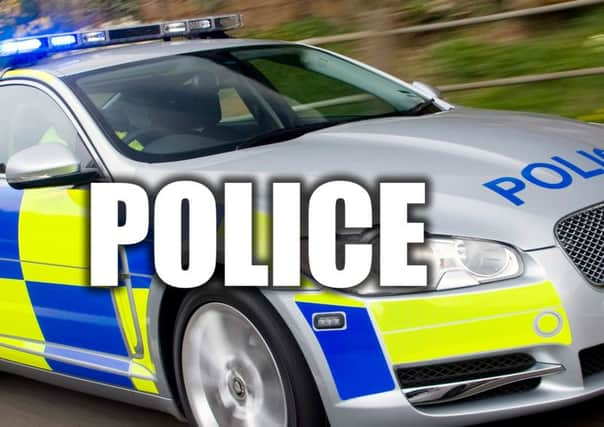Legal highs banned in Lincoln city centre


Police hope the Public Space Protection Order (PSPO), which will take effect from April 1, will help to tackle anti-social behaviour and protect the city’s residents, businesses and visitors.
Council leader Ric Metcalfe said: “Nationally there is an increasing awareness of these so-called ‘legal highs’ and the damage they can cause to people and communities.
Advertisement
Hide AdAdvertisement
Hide Ad“We have evidence from the police, residents and businesses to show these substances are having a persistent, detrimental impact on local communities.
“Working with Lincolnshire Police, we are proud to be taking this proactive approach to tackle this emerging problem, protect Lincoln’s reputation and prevent further problems developing. We want our city centre to be a safe and welcoming place for residents and visitors alike.”
The public were able to give their views during a four-week consultation in November last year, which resulted in 97 per cent of respondents saying they would support a ban on consuming intoxicating substances - including alcohol and new psychoactive substances (NPS) - in Lincoln city centre.
Around 80 per cent of those who replied, who were mainly residents and businesses, said they had suffered problems caused by ‘legal highs’ in the area, while more than half (56 per cent) said they had directly suffered from anti-social behaviour in the area.
Advertisement
Hide AdAdvertisement
Hide AdThe PSPO has been made possible thanks to new legislation introduced in October 2014, which allows local councils to place an order where persistent activities are having a detrimental effect on the quality of life for people in the community.
This new power has been introduced as an option for the replacement of existing Designated Public Place Orders, which currently allow the prevention of alcohol consumption under certain circumstances in certain areas, and which the council introduced and the Lincolnshire Police enforce in the city centre, the Arboretum and Temple Gardens.
However, crucially the new PSPO is not just restricted to alcohol consumption and allows the council to tackle a wider range of issues.
Sam Barstow, Service Manager for Public Protection and Anti-Social Behaviour at the city council, said: “This new power gives the police and council the ability to deal with issues associated with the on-street consumption of these so-called ‘legal highs’ and we will be working with Lincolnshire Police to produce an enforcement plan to support the order.
Advertisement
Hide AdAdvertisement
Hide Ad“However, this is also about support as well as enforcement. We are keen to make sure that anyone using these substances is given the help they need. We’ll be working with local agencies to refer individuals for treatment.
“We’ve had an overwhelmingly positive response to this move through the consultation and anecdotal evidence. It’s an issue that we know is affecting most major towns and cities in the country and we’ve received a lot of support from other councils interested in following our lead.”
Inspector Pat Coates, of Lincolnshire Police, said: “We welcome the city council’s decision to ban the use of legal highs in Lincoln city centre and we hope it will have a real effect in cutting out some of the detrimental effects the use of these substances has on our communities, as well as offering help to any individuals who may need it.
“We will be working with the council on a full enforcement plan but the PSPO gives us a stronger power to take legal highs off people and also gives us the power to issue a fine through a Fixed Penalty Notice to the person using them. However, in the first instance we will refer people to a local treatment agency and hope that will help put them on the road to receiving any assistance and support they might need.”
Advertisement
Hide AdAdvertisement
Hide AdThe order would contain the following prohibition: Person(s) within this area will not ingest, inhale, inject, smoke or otherwise use intoxicating substances.
Intoxicating substances is given the following definition (which includes alcohol and what are commonly referred to as ‘legal highs’): Substances with the capacity to stimulate or depress the central nervous system.
Anyone who breaches the order would be committing a criminal offence and could receive a Fixed Penalty Notice or face a fine in court. Police and council enforcement officers would have the power to demand the surrender of the intoxicating substances.